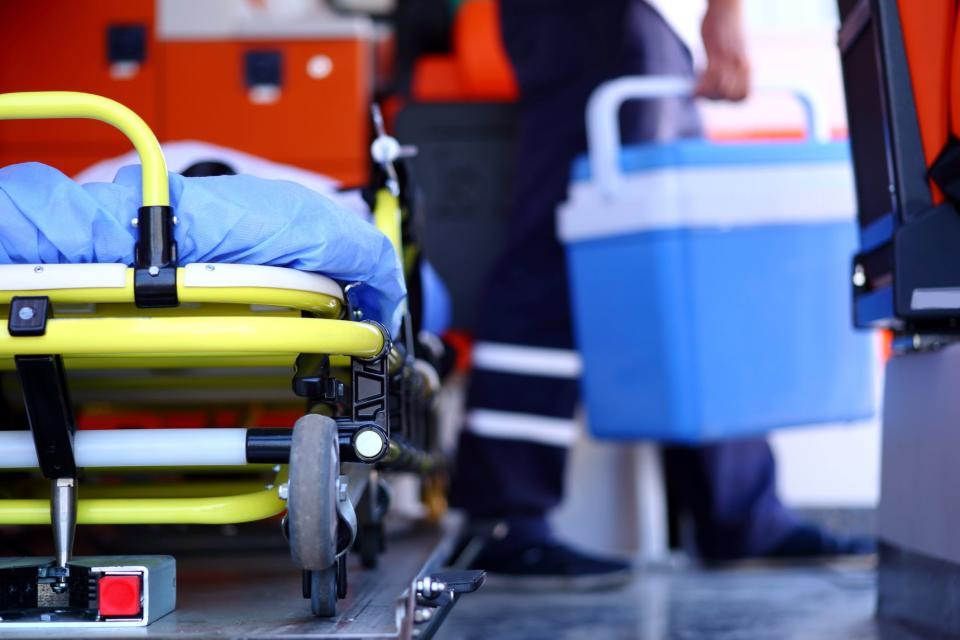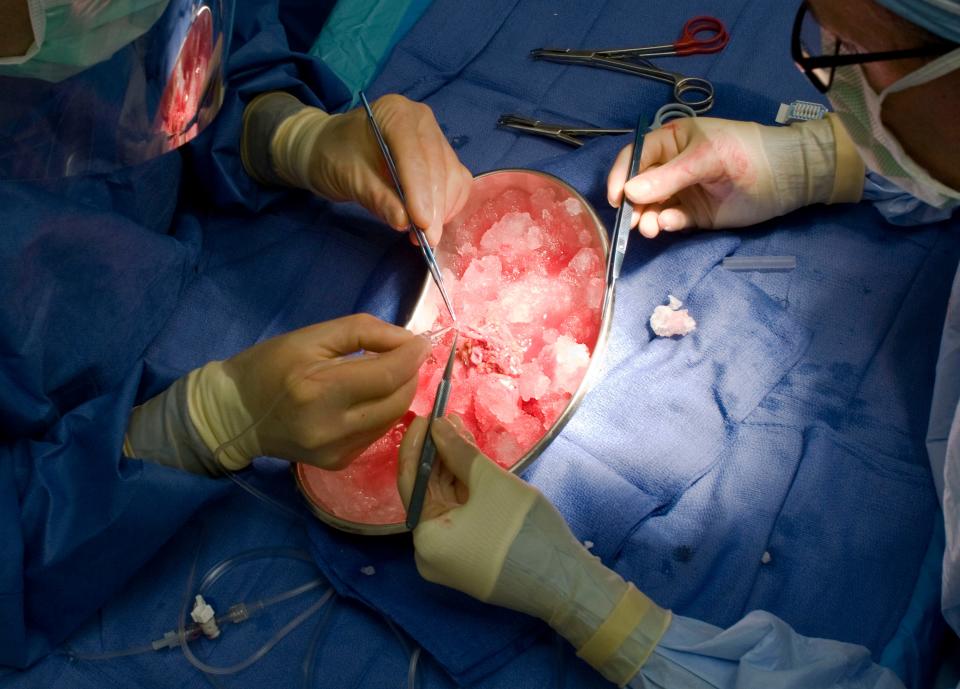Flight delays for organs: Here's why the donation transportation system needs to change
Anthony Depasquale's lung transplant almost didn't happen.
He had been in the hospital this spring with complications from COVID-19 on a ventilator and in a medically-induced coma for months.
Depasquale was matched with a pair of lungs from a donor in Delaware, but he was being cared for at NYU Langone Hospital in New York, and the lungs still had to get there.
"There was a terrible storm, and they could not fly in those conditions," Terez Depasquale, Anthony's wife, told USA TODAY. "By the time they would be able to fly, those lungs were no longer viable."
Under the current system, organs often have to arrive at airports hours before a flight, and when weather delays kick in, the extra time outside the body can mean they are no longer viable for transplant.
Organ transplants are complicated no matter what, but transporting them over long distances adds another layer of complexity. The United Network for Organ Sharing said in an open letter to Department of Transportation Secretary Pete Buttigieg that regulations around how and when organs can be shipped make it more likely for the process to break down.
Safety first: Proposed legislation would require the FAA to diversify airplane evacuation tests

The network's letter asks the DOT to reevaluate some of those rules to make the organ transportation process more streamlined.
"Practical, logistical, and regulatory obstacles to the safe and efficient delivery of donor organs should be identified, remedied, and monitored," the letter said. "We believe you, the FAA, and TSA could provide valuable assistance on how to increase the efficiency of commercial air transportation of organs for transplant."
Depasquale ultimately had a successful transplant in May.
About three or four weeks after his initial missed connection, a new pair of lungs became available locally, making the process smoother.
"It was a blessing, these lungs came from NYU, they were local," his wife said. "The less amount of time that the lungs are out of the body, the better for the recipient."
What are the rules for organ transportation?
New regulations that were enacted after the Sept. 11 attacks have meant that organs need to travel as freight when they are shipped by air, which extends the time it takes them to get from donor to recipient. They often have to arrive at the airport hours before a flight and can take extra time to be unloaded and get to the transplanting hospital.
"Any breakdown in transportation is unacceptable because that means that a patient can't get their organs," United Network for Organ Sharing interim CEO Maureen McBride told USA TODAY.
Trouble getting a visa?: New website highlights travelers affected by 'unconscionable' wait times

Organ transplants are already time-sensitive procedures, and any extra delays can make the organs unviable for the recipient.
"A transplant hospital might have to turn down the organ because they wouldn't get it in time," McBride said. "The organ might not be able to be used in the most desperate of situations," as initially happened to Depasquale.
How can organ transportation improve?
McBride said organ transportation policy doesn't necessarily need a complete overhaul, just incremental adjustments to make it more efficient.
"If we could get back to even the pre-9/11 rules for organs, there was a lot less risk in that scenario because the organs were accompanied all the time," she said. "A solution that would just remove some of those barriers would be ideal for us."
Before the current regulations were enacted, couriers could deliver organs directly onto planes, often right to the cockpits, and then another courier would meet the aircraft at its arrival gate to collect the package and bring it to the hospital, according to McBride.
Freight shipments are much less streamlined, she added.
Disabled travelers: Advocates say airlines have to do better in their handling of wheelchairs
For now, the network is just asking for time to meet with DOT and other administrators to start a conversation about possible solutions.
McBride acknowledged breakdowns in transportation under the system are rare. The network's advocacy is focused on finding efficiencies in the system to reduce those numbers even further.
People can still receive donated organs
Angeles Herrera said a direct-donation kidney transplant saved her life in 2007. She had various forms of kidney disease since childhood and ultimately needed a transplant.
Through a friend, she found a potential donor on life support whose family agreed to make the donation if the two were a match. Among other complications, however, Herrera was in San Francisco, and the donor was in the Washington, D.C., area.
"It was extremely, extremely scary," she said. Even though Herrera and the donor were a near-perfect match, "it's very unlikely that the kidney's going to work because it's been outside the body for more than 24 hours."
Traveling with kids: Southwest tests a new boarding process to help families stick together onboard
Cross-country transportation made the whole process more complex, but Herrera said her nurses were well-informed of the kidney's progress throughout its journey.
Ultimately, her procedure was a success.
"The kidney began to work immediately," she said. "People say it's rare for that to happen when an organ's been asleep for so long."
For Depasquale, his new lungs have given him a new outlook on life.
"It was the best thing that ever happened," he said. "I feel like a lot of the times before, I would take stuff like (seeing my kids when I got home) for granted. Now I'm just appreciating it."
Share your experience
This article originally appeared on USA TODAY: Advocates want organ transplant transportation to be more streamlined

